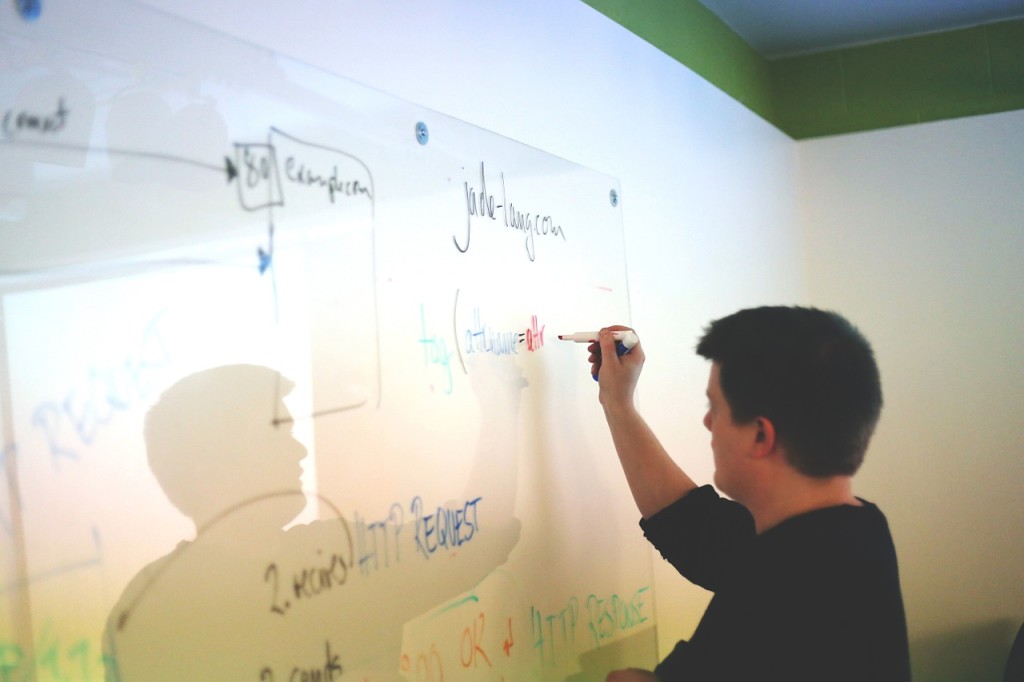Millennials are changing the working landscape, and sooner or later, employers are going to have to adapt.
How many times have you found yourself stuck in a cubicle at 4pm, watching the clock for the next hour while browsing Instagram, just waiting until it’s an acceptable time to start your commute home?
There are many things wrong with this scenario, and yet it happens ALL the time.
Think of all the hours of productivity wasted.
And what happens as a result? Millennials get labeled as “lazy” and “entitled,” all because we’re forced to work in environments that do not allow us to do our best work.
It’s no secret Gen-Y is opposed to the rigid boundaries of the standard 9 to 5. What if you are most creatively stimulated at 11pm? And what’s the harm in taking that yoga class mid-afternoon if it’s just what you need to come up with the next big idea for your latest project?
Millennials are changing the shape of the workforce everywhere. By 2020, in the U.S. alone, there will 85 million millennials, representing 40 percent of the entire workforce.We bring with us unique skills and new ideas for ways to work. Not only are we the highest educated group to date, but our technological expertise is unparalleled, and our hunger for innovation and positive societal impact is creating a cultural shift.
Nothing is more frustrating than having our potential stifled by “traditional” employment frameworks.
The problem is, this type of change takes a long time to play out. And millennials aren’t willing to wait.
We want more out of our careers. We want more out of our lives. But don’t think for a moment we aren’t willing to work for it. We’re just asking employers to be a little open-minded in return.
We want flexible hours.
Did you know the average person spends over 100 hours a year commuting? Millennials are not prepared to sit in traffic everyday of their lives, thinking about all of the work they could be getting done if they had just stayed home.
We’re becoming the driving force behind the work-life integration phase, prioritizing the freedom to work remotely over higher salaries because of the flexibility and increased productivity. Let us have some say in the way we work, and we’ll be sure to make it worth your while.
We want the opportunity to prove ourselves.
Employers are having a difficult time recruiting and retaining millennials, and millennials are struggling to find the type of employer they want to work for. How many times do you hear the cliché, “You don’t quit a job, you quit a boss?” Thanks to the negative stereotypes (read: entitled, spoiled, helpless), some workplaces assume we need supervision when performing delegated tasks. There’s nothing worse than feeling the constant pressure of someone looking over your shoulder as you work.

Millennials have big ideas, they just need some space (and encouragement) to develop them.
Listen, we understand deadlines. We recognize what is expected in our given roles (as long as these expectations are made clear from the get-go). We are responsible workers. Micromanaging is only going to ignite feelings of condescension and doubt. Give us the chance to prove ourselves, and we may pleasantly surprise you. After all, in order for creativity and productivity to flourish, you have to let go of some control.
We want room to grow.
Lately it seems job security is a rare find for millennials. We’ve become familiar with working contract to contract. But we appreciate some career trajectory. If an employer really wants to catch our attention, they should show us how we fit into their five-year company plan. The entry-level role is a lot more appealing when we can see the leadership position it can lead to.
That said, many millennials are not interested in climbing the corporate ladder. While we like to have objectives to work towards, we need some short-term perks as well. We want opportunities to learn and develop new skill sets. We want to feel challenged in the work we do. Offering the chance to take courses and attend conferences helps us build knowledge and experience as we work towards our career goals.
There’s no question millennials have big plans for their working and personal lives. They want to accomplish their hopes and dreams, and they remain persistently optimistic about doing so. As the workplace continues to evolve to accommodate new technology and ways of staying competitive in the marketplace, employers must also remain open to new methods of working. No business will reach it’s full potential without taking some risk. We’re just asking for a little trust on this one.

